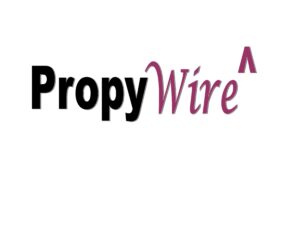
An American insurance company is to use blockchain and cryptocurrency to protect the livelihoods of the world’s most vulnerable farmers.
The Lemonade Foundation is launching Decentralized Autonomous Organization (DAO), Lemonade Crypto Climate Coalition, to bring affordable parametric climate and weather insurance to subsistence farmers and keepers of livestock.
Parametric insurance pays out based upon a trigger event, such as rainfall or wind.
Avalanche, Chainlink, DAOstack, Etherisc, Hanover Re, Pula, and Tomorrow.io are key partners in the stablecoin-denominated, decentralized, and climate-conscious application on Avalanche.
“By using a DAO instead of a traditional insurance company, smart contracts instead of insurance policies, and oracles instead of claims professionals, we expect to harness the communal and decentralized aspects of the web3 and real-time weather data to deliver affordable and instantaneous climate insurance to the people who need it most,” says Daniel Schreiber, Director at the Lemonade Foundation.
Insurance protecting the most vulnerable
There are approximately 300 million farmers in Africa, the majority of whom rely on their farms to subsist, and for whom climate change presents an existential threat.
Traditional insurance, when available, is often too expensive, says Rose Goslinga, co-founder of Kenyan insurtech firm Pula. “This is where the power of the Lemonade Crypto Climate Coalition comes in,” she says.
Farmers can purchase insurance using stablecoins or local fiat using a mobile device, and will receive insurance payouts via the same means.
Using stablecoins instead of other cryptocurrencies insulates farmers and Lemonade from the risks accompanying crypto’s unpredictability.
How can DAOs be used?
The heart of a decentralized autonomous organization is a smart contract, a piece of code that lives on a blockchain, executing certain actions when some conditions are met.
A simple example would be, “Pay person X $100 when the temperature exceeds ninety degrees,” or “if person A contributes ten DOGE, pay him 4 ETH.”
More complex smart contracts can include the terms of an insurance policy that determines under which conditions an insurance claim gets paid out, as is the case with Lemonade.
The smart contract can have embedded business rules, triggers, and cashflows, and can be designed to deliver functionality similar to that of a special purpose vehicle.
Lemonade’s DAO will know when weather conditions qualify farmers for a payout via special bits of code called oracles.
Oracles supply outside data to the blockchain, for example, forecasts of rain, which the DAO then uses to determine if and when to pay the farmer. The payout is done autonomously, without human intervention.
It is important that the oracle provides reliable data to the smart contract, otherwise the insurance contract will behave erroneously. Chainlink is a company that specializes in oracles.
“The Lemonade Crypto Climate Coalition is a prime example of how innovative solutions built on the blockchain can drive global financial inclusion previously unavailable,” says Sergey Nazarov, co-founder of Chainlink.
The plan is to make their resources available to protect the multitude of farmers depending on what they grow from the plethora of adverse climate conditions.
Disclaimer
All the information contained on our website is published in good faith and for general information purposes only. Any action the reader takes upon the information found on our website is strictly at their own risk.

